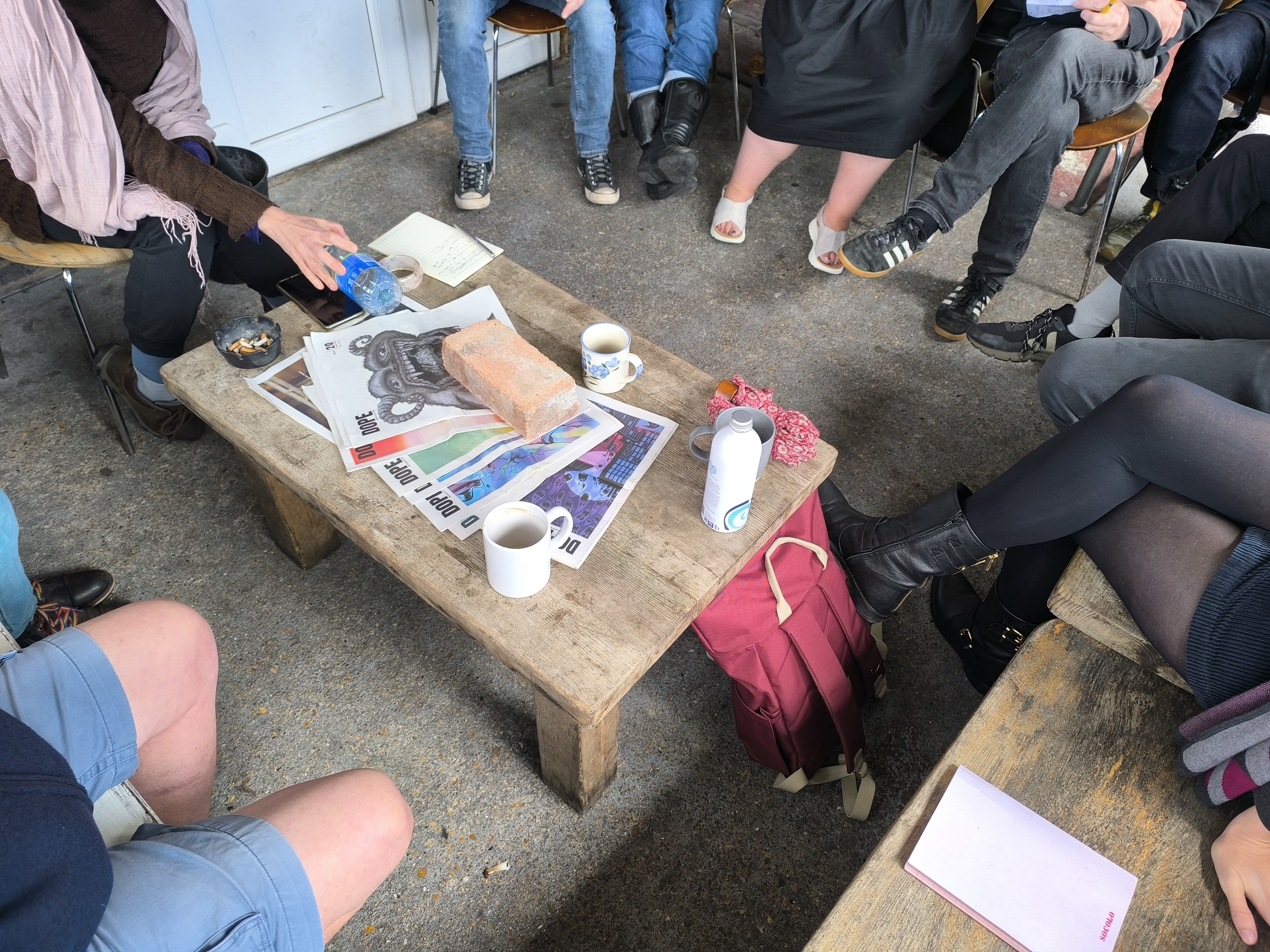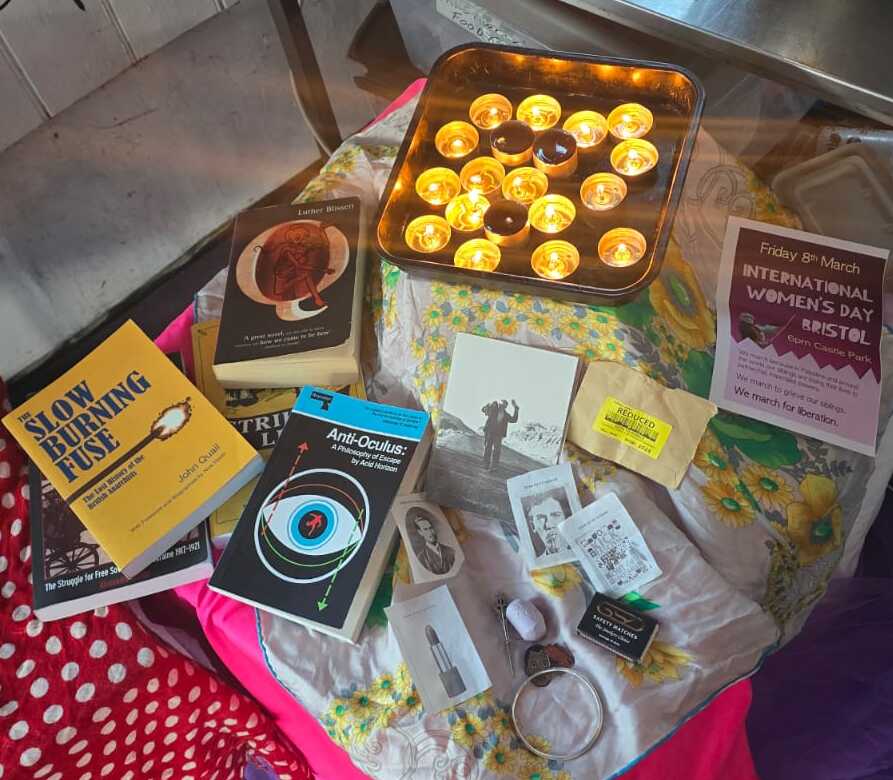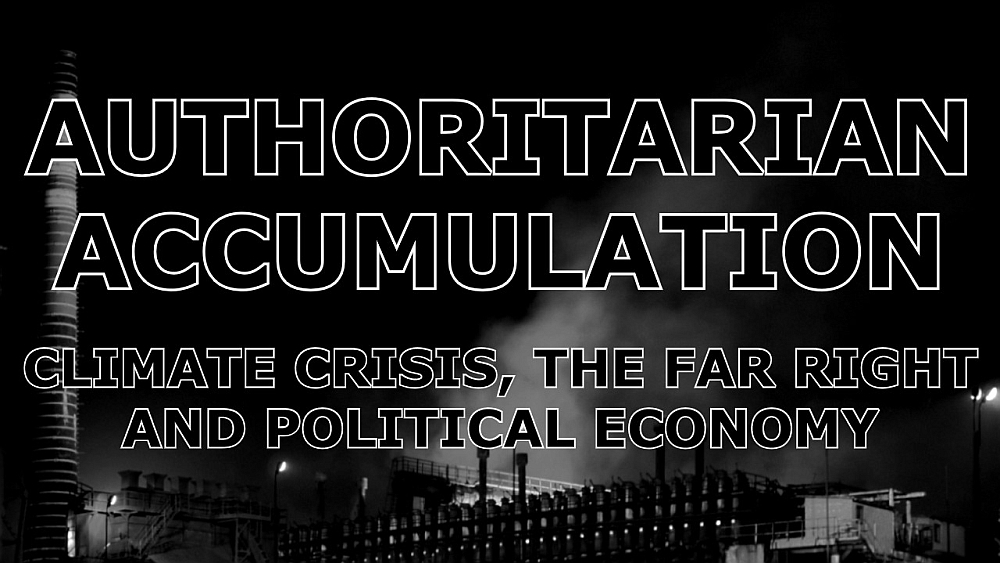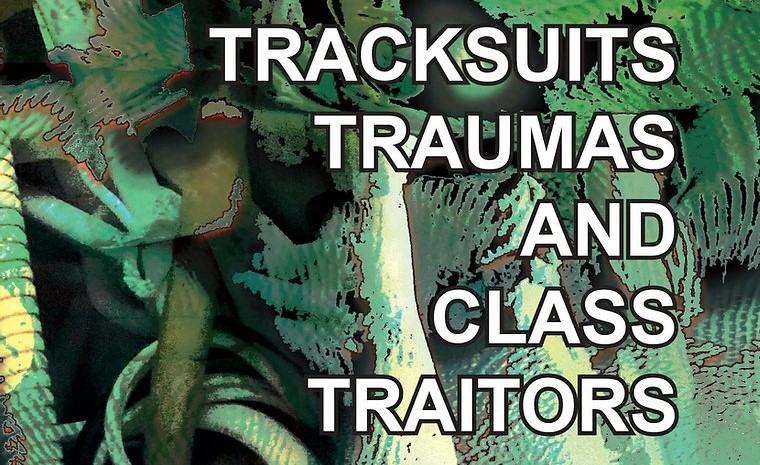Martin Bradbury, Plan C Birmingham
The key issue at stake in our movements is the issue of how we respond to the increase in poverty under neoliberalism. Austerity represents a systematic attack on the working class and as such the dominant approach of our movements since 2010 has been to counter this with an anti-austerity agenda that rejects both cuts to particular services and the dismantling of the welfare state more generally. This has locked us into a path that has required us to form broader coalitions with groups and individuals that do not share our view of a world beyond capitalism. Practically speaking this has meant that we have had to moderate our positions in order to maintain these alliances, an approach that we have justified with recourse to notions such as the need to be realistic and pragmatic given current conditions. As such we have largely refrained from openly uttering the dreaded C word (Communism) for fear of scaring off the kind of wishy washy, Guardian reading soft left who profess to care about working people whilst simultaneously declaring their true contempt for those very same people. How exactly do they declare their contempt? They declare it by arguing that in fighting for a world beyond capitalism we are being utopian, that in reality There Is No Alternative and that as such we should scale back our dreams. For those of us in the student movement this has manifested itself in demands for free printer credits and cheaper coffee on our campuses.
The Importance of Being Earnest, The Practicality of Being Impractical
Why do they think this of us? If you get to speak to them they will give various reasons but ultimately they all come back to one simple fact : they are unable to broaden their political horizons and believe that working people are able to direct their own lives. They cling tenaciously to the reactionary belief that the slave requires a master, that the slave will always require a master, and as such the most we should demand is that the master only whip us 15 times instead of 16 because it is unrealistic to demand a state of affairs in which there is no master and there is no whip. The soft leftist rejection of the communist project as a living project amounts to an insidious form of self-hatred, itself stemming from an equally toxic socio-political inferiority complex regarding their own inability to live in a world in which they are not constantly told what to do by others. If they were to only apply this to themselves they would be merely irritating. However they project their feelings of inferiority onto others and brand as a heretic anyone who dares to shoot for the stars beyond an unbearable reality. This willingness to generalise from their own experience of inferiority is what makes them dangerous rather than merely irritating. For those us who dare to think beyond their narrow horizon we must remember that we did not arrive at our positions by magic. We read. We wrote. We had conversations with each other. We protested together. We occupied together. We came into conflict with the state together and some of us got smashed and saw our friends and comrades get smashed. Then while we were busy picking up the pieces and trying to put ourselves, our friends, and our comrades back together again we saw ourselves being lied about, defamed, slandered, and vilified; sometimes our antagonists were those that we thought may be on our side and sometimes they were those that we knew for certain were our enemies. If their evaluation of us as extremists is correct then we must tell them that getting to be this militant was not easy, it required a lot of hard work, and that by asking us to moderate our views it is they and not we that demand too much.
Considering this it is important to ask the question – where has being moderate, realistic, and practical got us? It has got us more of the Conservatives. It has got us an NHS that has been privatised behind our backs. It has got us a list as long as our collective arm of people who have committed suicide because their benefits were stopped or because their application for benefit was rejected altogether. We struggle through dull meetings that drain and demoralise us, making arguments about the evils of neoliberalism that we’ve all made a hundred times before and often to the same people. They smile at us and tell us that they share our concerns, that like us they also care about people who are struggling to make ends meet. Maybe they will even stand on a picket line alongside the workers that they have so much contempt for, telling them how they are in solidarity with them and how difficult it must be to live on such low wages.
Poverty & Drudgery – A False Distinction
The wishy washy conception of poverty begins and ends with lack. It begins with lack because the concern is with an unequal distribution of the social product. It ends with lack because it fails to realise that the product is ours in the first place. Pity the poor who can’t afford a holiday abroad or all the mod cons! This conception of poverty is intellectually debased because it is a strictly bourgeois conception of poverty. It testifies to the sovereignty of money whilst failing to recognise the tyranny of that sovereignty. This bourgeois conception of poverty is beneath us because it fails to recognise that it is a systematic daily denial of our true capacities that built the New Jerusalem for the bourgeoisie and the dark satanic mills for the rest of us. As such we must be willing to say that we the workers of the world deserve not only all of the social product but much more. We deserve a life worth living, a life were we can flourish and become what we are capable of becoming. This is of course not to say that we do not share with the bourgeois leftist a concern about unequal distribution. Of course we do. We care just as much as they do about income inequality and cuts to the welfare state. We fight against those things no less than they do. The problem is that by not going beyond their concept of poverty we internalise it in our movements and reproduce the logic of those who are unable to imagine a world in which human beings don’t exploit each other. If we are Communists we must articulate an alternative conception of poverty within our movements, one which points to a world beyond exploitation and capitalist social relations.
At this point I would like to take the opportunity to quote at length the words of the Marxist Herbert Marcuse, a man who was certainly not opposed to social change. This quote is rather lengthy but I believe that it deserves to be quoted in full because the interview which it is taken from was the biggest influence on me in developing the perspective that I have attempted to articulate in this piece:
“In the development of Marxian theory, not in Marx himself but in the development of his theory, Socialism has become, the concept has become entirely, almost entirely been focussed on a more rational, larger development of the productive forces, on a higher productivity of labour, on a more rational distribution of the product, instead of stressing that a Socialist society as Marx envisaged it, at least as the younger Marx envisaged it, was a society qualitatively different from all proceeding societies. Now in what way qualitatively different? The main point I would say is for Marx a genuine Socialist society was a society in which the quality of life was decidedly different from the existing society meaning in a genuine Socialist society labour, full time alienated labour, would no longer be the measure of wealth and value. In an authentic Socialist society men and women could live their life without fear, without feeling compelled to spend their entire adult existence in alienated performances.”
Practically speaking, we must make the case that being unable to pay the rent or having to miss a meal is only one form of poverty, that this is the form of poverty made visible by money and that as such it is the only form of poverty that capitalist society can recognise. Counter to this we must make the case that there is a form of poverty which is rendered invisible in capitalist society, namely poverty as the systematic denial of individual and therefore collective human development, the denial of human capacity that results from doing the same monotonous task day in, day out in order to earn a living. A life of drudgery is a life of poverty. I came to university at the age of 27 and discovered that I have a talent for writing, a talent that was denied for a decade because I had to do bullshit service sector jobs to stay alive. Imagine the hidden capacities that you may all have that you may never get to develop or even become conscious of because of the drudgery and monotony having to reproduce yourselves every single day requires. This is regardless of what kind of work you do or how much you get paid to do it. The development or non-development of those capacities, our ability or inability to manifest our capacities for others, is a more profound measure of real wealth and therefore real poverty. It is more profound because unlike their conception it allows us to imagine that which we are not supposed to imagine and demand that which we are not supposed to demand.
In conclusion, if we are to ever move beyond capitalism we must articulate a conception of wealth and poverty that is radically different to that which dominates in capitalist society, a conception that is grounded in the richness of human ability rather than the capacity to simply buy back in its entirety the social product which has already been stolen from us. We must be willing and able to tell the soft lefties that is they who are being unrealistic, that is they who are being utopian. If they want to deny their own agency then let them. If they want to let their own inferiority complex dominate them then let them. If they want to limit their political imaginations then let them. In short, if they want to hate themselves then let them. It is our task to do what they are unable to do themselves. It is our task to go beyond them.
* The full interview with Herbert Marcusse that inspired the author to write this piece can be found here.





